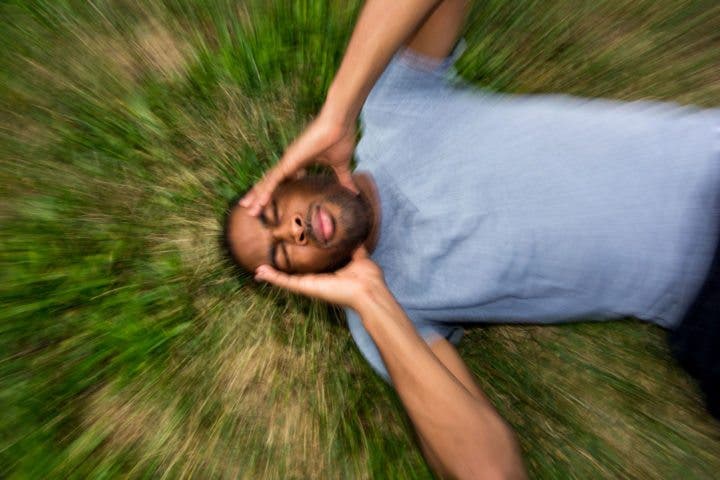A concussion is a type of mild injury that can cause a brief loss of normal brain function in response to the injury or blow to the head. The Centers for Disease Control and Prevention (CDC) notes that when the brain bounces off the skull after a blow to the head , it can damage brain cells and change the brain chemically.
According to Elizabeth M. Pieroth, board certified neuropsychologist and associate director of the Sports Concussion Program at North Shore University Health System, people generally don’t take blows to the head seriously, but everyone who suffers a hit on this site, you need to go to the hospital for a thorough review and evaluation. Remember that the doctor is the best person to tell you what to do.

How to detect a concussion?
Pioroth says there is still no efficient way to immediately detect whether or not you have a concussion. As of now, there is no screening test or blood test that quickly identifies it, although research is currently underway for it.
However, doctors consider two things when evaluating a concussion:
- Identify what caused the injury, whether it was a skiing, car or motorcycle accident bike.
- Assess for symptoms or signs that indicate you have a concussion.
To be able to identify if you suffer from a concussion , we show you 7 signs or symptoms that will indicate or alert you if you suffer from it.

7 signs that you have a concussion
1. You feel “Off”
When you hit your head, it is normal for it to hurt; in fact most blows hurt. However, having pain is not enough to diagnose a concussion.
Generally, when you suffer from a concussion, you can experience changes in your mental state, you can also perceive the environment or space where you are as if it were cloudy, having blurred vision .

2. People around you notice that something is wrong
One of the signs of a concussion are neurological symptoms, and this could be noticed in the way you move, walk, or when you interact with other people.
For example, if you get up from a chair you drift or lose your balance, it is a red flag. Another important and noticeable symptom is when you talk and do not coordinate what you are saying. They are factors that your family and friends can easily notice and indicate that you should get a medical check-up.

3. Your personality shows different
If after receiving a blow to the head you feel that your brain is going at half speed, it takes longer to process information, you act clumsy or agitated, it takes longer to answer questions, and you even have a hard time recognizing people, They will be symptoms that indicate that you are suffering from a concussion and that you must urgently go to the doctor.
If you are normally a person who likes to have long conversations, either with your spouse, a friend or family member, and you generally get on very well, and you suffer from the above symptoms, even more so, you should go to the doctor.

4. You vomit a lot
This symptom goes far beyond nausea. In fact, it is normal to feel nauseous after receiving a blow to the head, because the blow can push your inner ear and change your sense of balance. Or perhaps the injury affected you emotionally and caused an upset stomach. But, if you are vomiting repeatedly, it is recommended that you visit your doctor for an evaluation.

5. You faint
Pieroth says that when you hit your head and lose consciousness, you should go to the hospital and make sure someone who was or knows about the accident is with you, or at least make sure you ask what happened so you can inform the doctor.
You may also think that you were unconscious, when in fact you were awake and responding the entire time. When this happens and you do not remember it, it is defined as a type of amnesia, hence the importance of being accompanied. However, if you were alone when you were injured, and it is difficult for you to remember what happened, it is best to go to the doctor immediately.

6. Symptoms occur immediately
There is a myth that you can develop a concussion days or weeks after the incident , but this is not true according to Pieroth. If symptoms are delayed, it is possible that something else is happening. Therefore, the importance of undergoing a medical evaluation, since you could be suffering from more serious injuries, such as a blood clot in or around the brain called a hematoma, or a neck injury.

7. Your symptoms get worse
While a mild headache, mild confusion, or irritability does not necessarily indicate that you have a concussion, you should pay attention if the symptoms are becoming more severe.
In general, with rest, the symptoms will remain the same and will begin to improve little by little, but, if you progressively notice that you are fatigued, it is more difficult to wake up, or that your headache has become severe, go urgently to the doctor, as you could have a concussion , or a more serious neck injury. Either way, the doctor is the best one to diagnose it.

Conclution
Blows to the head cannot be taken lightly, as they could be dangerous. If you have suffered from any and you feel that your vision becomes cloudy, it is difficult for you to concentrate, you vomit more than normal and you lose your balance, among others, it is necessary that you visit a specialist and tell him how your accident happened. On the other hand, if the blow you suffered was not serious, you should rest, since rest helps the brain heal little by little.
Reference
- Jessica Migala. 8 Signs of a Concussion You Need To Know. For Bicycling [Revised January 2017]